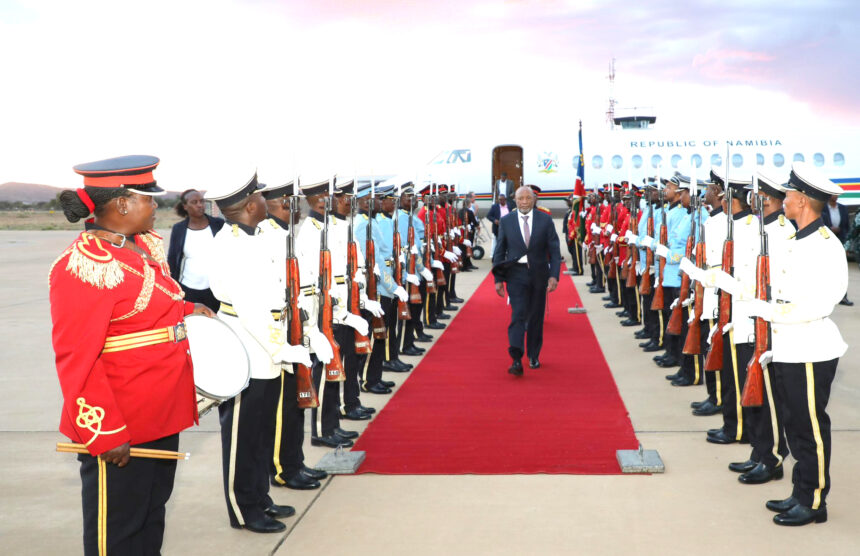Namibia’s enduring friendship with Cuba will be further solidified with President Nangolo Mbumba’s visit to Havana.
He is expected to be in Cuba tomorrow to open doors to new areas of cooperation, while reinforcing the deep-rooted relationship between the two nations.
Presidential spokesperson Alfredo Hengari told New Era yesterday that the President’s visit is not only an affirmation of the historic ties between the two countries, but also an opportunity to broaden cooperation in new sectors.
“President Mbumba’s visit will lay the groundwork for stronger economic collaboration, focusing on trade and investment that can propel both countries forward,” he stated.
Mbumba’s upcoming visit would likely centre on discussions aimed at strengthening these economic links, with a focus on expanding South-South cooperation.
Although late president Hage Geingob was posthumously awarded the prestigious José Martí Order, Cuba’s highest national honour, Hengari mentioned that Mbumba is also expected to receive the same award during this trip.
The two nations are expected to explore mechanisms to enhance economic cooperation, paving the way for a new era of growth and collaboration.
Hengari added that a key highlight of the ongoing cooperation between the two countries was the State visit to Namibia by Cuban president Miguel Díaz-Canel Bermúdez in August last year.
He said that visit led to the signing of three significant agreements, including the Memorandum of Understanding between the Namibia Investment Promotion and Development Board (NIPDB) and Cuba’s Centre for the Promotion of Foreign Trade and Foreign Investment (PROCUBA), the MoU on political and diplomatic consultations, and an agreement on the transfer of convicted persons.
“These agreements underscore the commitment of both nations to deepen their collaboration across various fronts,” Hengari said.
The ties between Namibia and Cuba date back to the struggle against apartheid, during which Cuba played a crucial role by sending troops to assist Namibia in its fight for independence.
Hengari observed that this solidarity laid the foundation for diplomatic relations, which were officially established on 3 April 1990 after Namibia gained its independence.
“Since then, the two countries have enjoyed a robust and mutually- beneficial partnership, evidenced by frequent exchanges in various sectors.
In the decades since, Namibia has consistently expressed unwavering support for Cuba on international platforms, particularly in advocating the removal of the unjust economic embargo imposed by the United States.
A testament to this is Namibia’s participation in the 7th African Continental Meeting of Solidarity with Cuba, held in January 2024 in South Africa,” he added.
The bilateral cooperation between the two nations spans multiple sectors, from health and education to defence, construction and tourism.
Notably, the health sector has seen the deployment of 93 Cuban medical professionals across Namibia’s public health facilities, and thousands of Namibians have received higher education in Cuba, particularly in medicine, engineering and architecture.
In defence, the partnership has proved invaluable, with Namibian Defence Force (NDF) personnel receiving training in that country.
“In October 2023, four NDF members started taking Spanish lessons in Cuba in anticipation of their training in computer engineering and exploration radio electronic engineering courses, after completion of the Spanish language course. In 2024, four additional NDF members arrived in Cuba to join their colleagues in undergoing training in the same programme. To further enhance and deepen cooperation in military matters between the two sister countries, both countries have defence attachés in the respective capitals,” Hengari noted.
Additionally, a growing number of Cuban professionals are working in Namibia’s construction sector, contributing to the country’s development goals.
The recent agreements extend the deployment of Cuban specialists in construction until 2030, a clear indication of the long-term nature of this collaboration.
While health, education and construction have been the primary areas of focus, the potential for further economic engagement between the two nations is ripe for exploration.
Cuba has also expressed interest in importing Namibian fish, which could open new avenues for trade.



